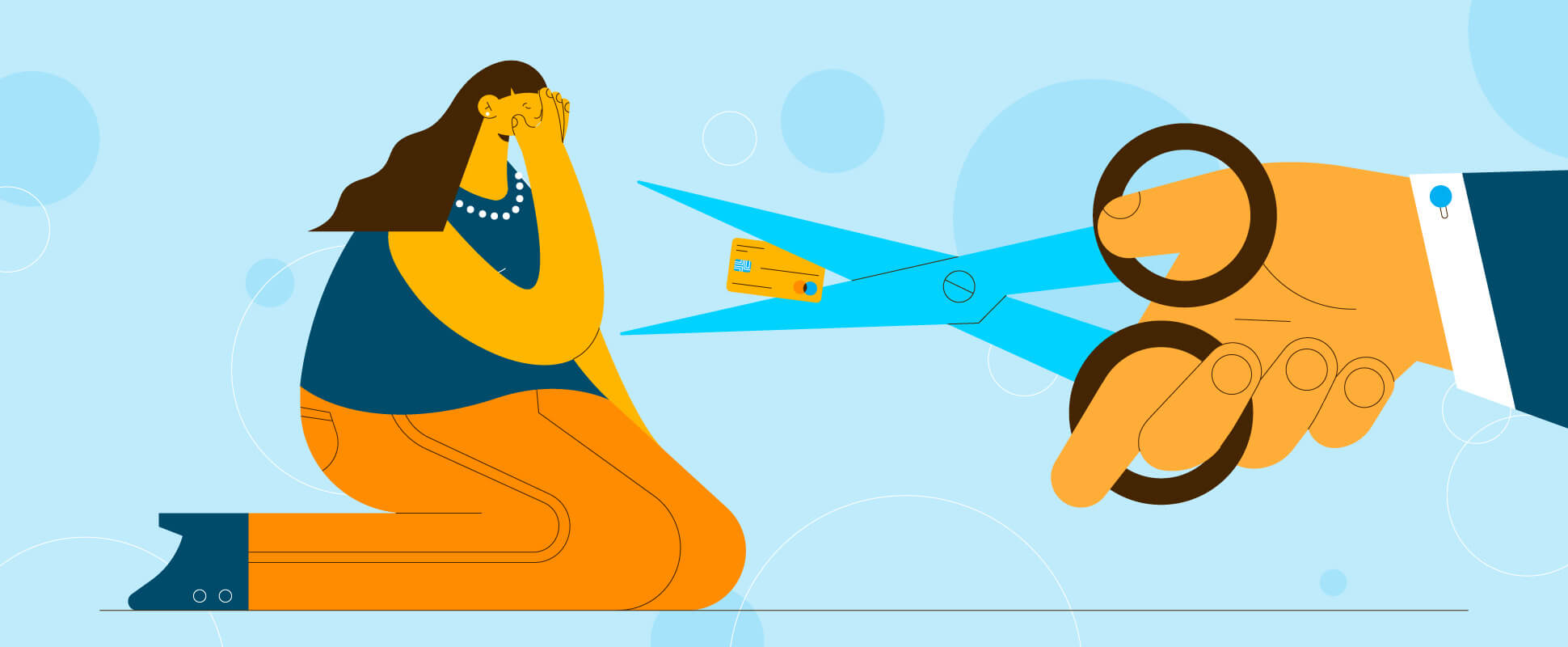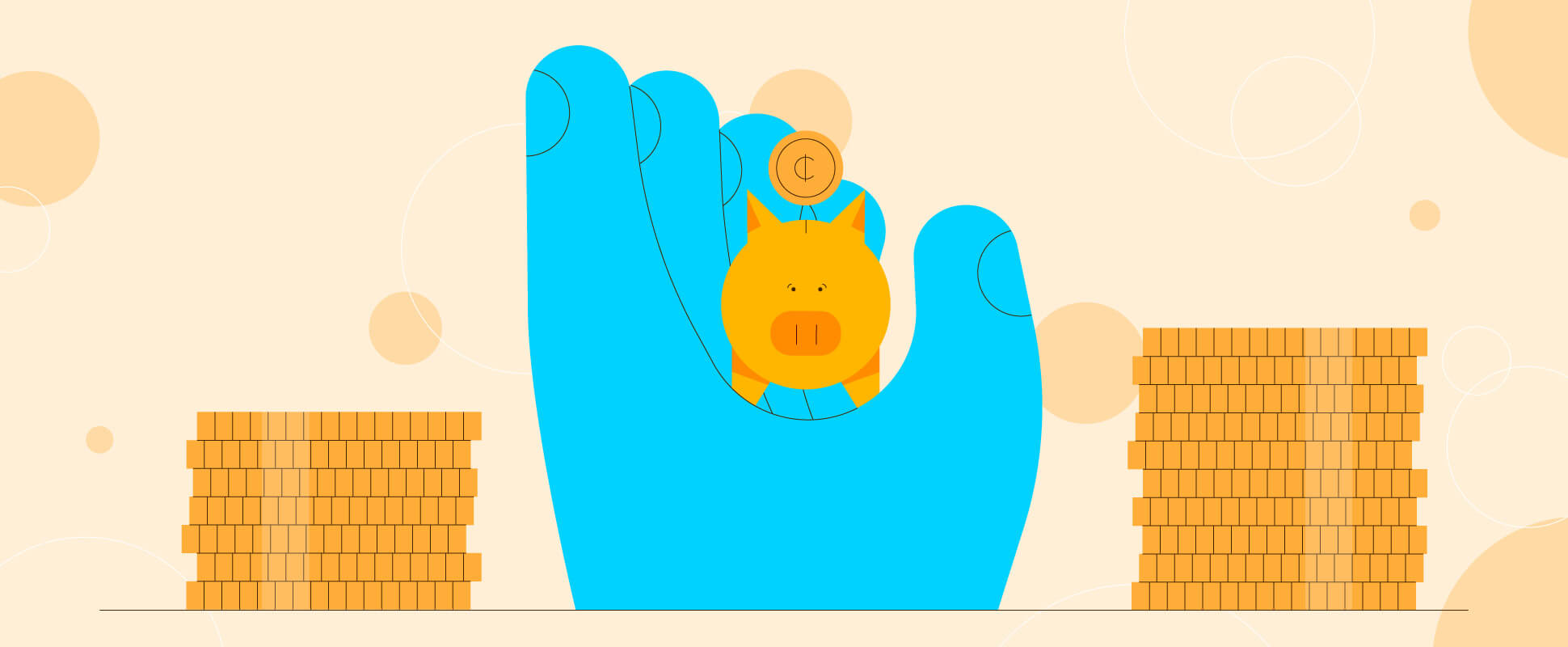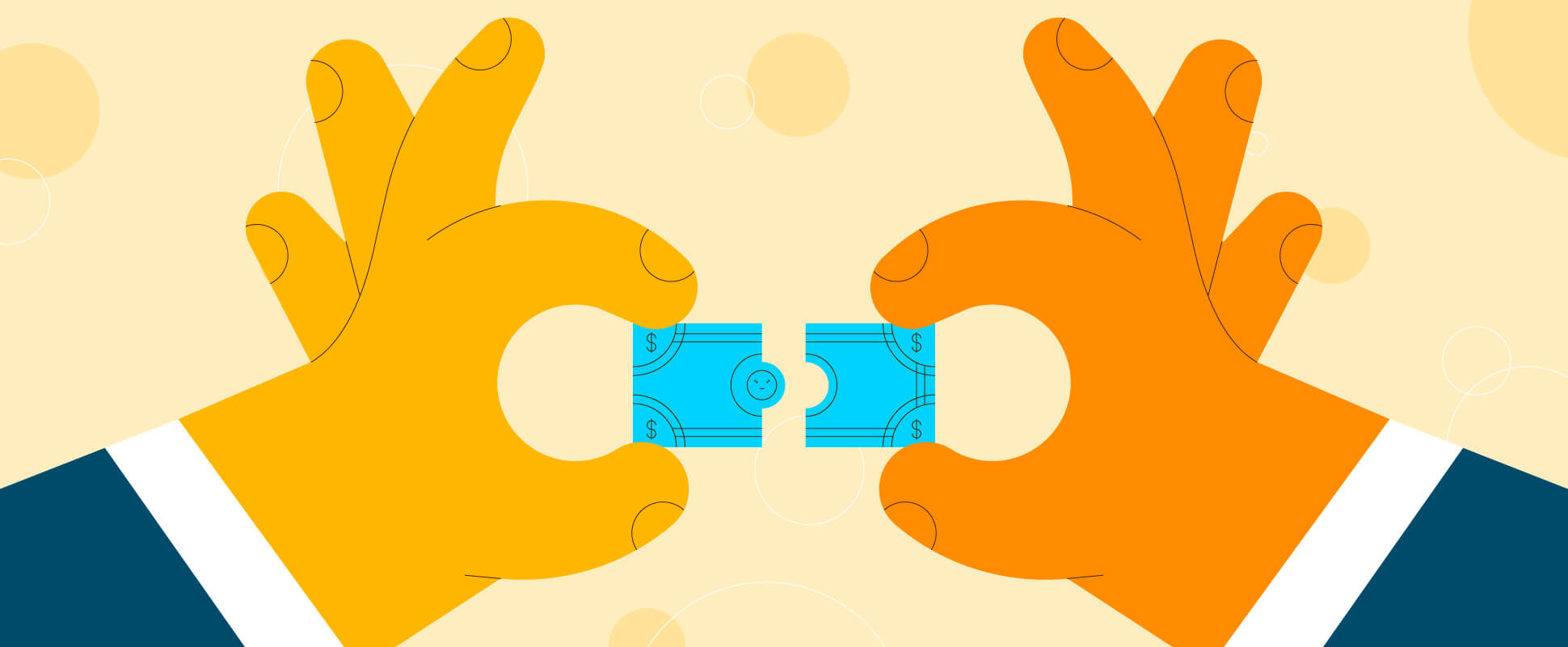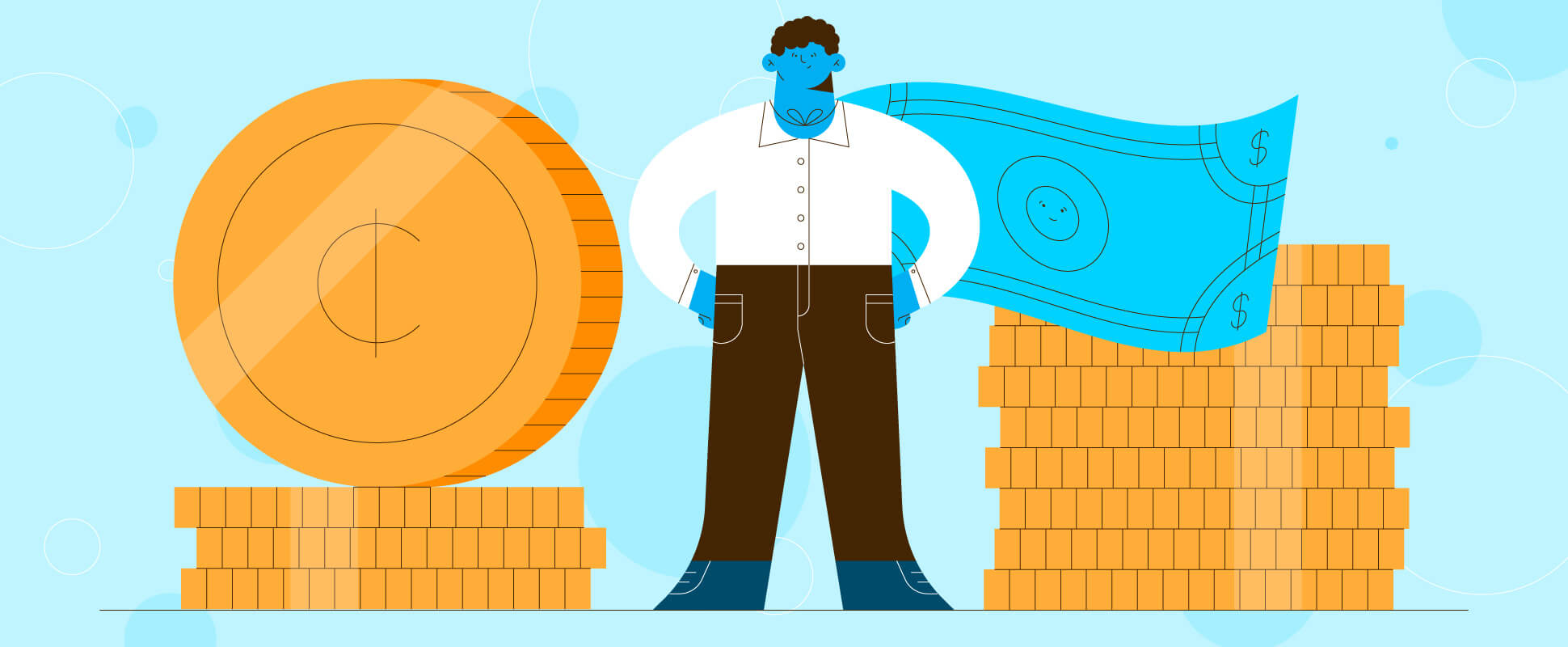How To Protect Yourself From Financial Abuse
Published on: 05/23/2019
Table of Contents
- What is Financial Abuse?
- Effects of Financial Abuse
- How to Get Help
- Protecting Yourself from Financial Abuse
- Healthy Relationship Habits to Manage Money Together
- Money Habits to Build Financial Independence
- Additional Resources
Financial abuse can impact those in romantic relationships and marriages and even older adults and their families. The abuse often happens gradually, making it hard to identify and even harder to escape. Women and the elderly are the most vulnerable, but anyone can be at risk.
Research shows that 99% of domestic violence victims also experience financial abuse. Elder financial abuse and fraud costs are estimated between $2.9 billion to $36.5 billion annually according to the National Council of Aging.
What financial abuse looks like varies, ranging from withholding money and limiting access to accounts to not being allowed to work. The impact of financial abuse can be long-lasting, impacting credit scores and the ability to secure steady employment. But there is hope. There are ways to break away from an abuser and rebuild your livelihood. There are also good money habits you can put into place to build your overall financial strength. If you suspect someone you know may be a victim of financial abuse, there are ways to get help.
What is financial abuse?

Financial abuse can take many forms, but in general, it’s when someone maintains control over financial resources. An abuser may use subtle tactics or more overt ones. The abuser might spend money without permission, withhold access to money, or prevent someone from working.
There are various types of financial abuse. In a romantic relationship or marriage, the abuser might block a person from accessing bank accounts or force them to cosign on a predatory loan. Predatory lenders may charge extremely high interest rates or even misrepresent the terms of the loan, making it difficult to pay back. Since the loan is cosigned, both the abuser and the victim suffer the consequences of late or missed payments including damage to their credit score and any legal action for not paying the debt off.
When financial abuse involves an elderly person, a family member might forge their signature on financial transactions, coerce them to sign over their will, or use their property without permission.
Signs of financial abuse
In many cases, financial abuse occurs gradually. It can happen without someone realizing — no matter the relationship. That’s why it’s important to know the signs of financial abuse. The sooner you’re able to recognize it, the quicker you can guard against it.
Here are the signs to watch out for:
- You’re not in the loop on financial information or decisions. You don’t know what accounts you have, the compensation structure for a spouse, or where money is located or spent.
- You’re on a budget that someone else decided. A partner or family member put you on a budget or an “allowance.” Maybe you’re regulated to a certain amount of cash every month or your credit card purchases are under a watchful eye.
- You sign documents without knowing what they are. You might sign business forms, tax returns and loan requests without knowing what they entail or even having a chance to read them.
- Someone is using your money or property without your permission. They’re stealing from you, gambling your money or spending your money on something you didn’t authorize. They may demand to use your credit card or force you to obtain a loan.
- Someone isn’t contributing to the partnership as agreed upon. You pay for all of the utilities, rent and groceries. They don’t contribute to the household, and are making no effort to do so.
Effects of financial abuse

Financial abuse can have detrimental physical, emotional and financial impacts, even years after the abuse has stopped. Victims of financial abuse may have difficulty keeping a job or finding a job due to their spotty employment history.
This is often due to an abuser limiting them from attending work or school, or interfering with their job and causing job loss. Because of the abuser's psychological tactics, a victim may feel less confident in their ability to secure a job, save money and make a solid life for themselves.
From a financial health perspective, if someone defaults on payments or takes out personal loans in your name, your credit score could be affected. When credit scores are harmed, it can take years to rebuild — making it difficult to buy things like a home or vehicle.
If money is withheld by an abuser, a victim might keep returning under the fear that they won’t have a way to survive on their own or take care of their children. This prolongs the financial abuse cycle and the ability to recover.
How to get help
If at any time you feel that you are a victim of financial abuse, seek professional help as soon as you can. If you suspect someone you know is a victim, encourage them to seek professional help as well.
Some people choose to work with a family or couple’s counselor, in the hopes that the relationship can be repaired. In most cases, though, an abusive relationship is beyond repair, and you need to seek professional help for yourself and your children.
To speak with someone confidentially, contact the National Domestic Violence Hotline. They can help you determine if abuse is happening in your relationship and connect you with helpful resources.
You can also seek safety and guidance from a shelter, such as one run by the YWCA. Local shelters often have staff available to help people transition and rise out of abusive relationships.
Protecting yourself from financial abuse

For most victims of financial and domestic abuse, leaving the relationship is the healthiest and safest option for the long-term. Many abusers make it hard to leave the relationship. They might track your activity or prevent you from accessing your bank account. Still, there are ways to remove yourself from a difficult situation and rebuild yourself as a financially independent person.
- Be aware of and involved with financial decisions. If you’re asked to sign paperwork, understand what it is that you’re signing. If something seems out of the ordinary, ask questions and pay close attention. Don’t make excuses for an abuser or obligate yourself to pay their loans, debts or late fees.
- Ensure your personal information is safe. Change your passwords, bank pins, access codes and credit card login information. Freeze your credit to make sure no one else can apply for credit or a loan under your name.
- Set aside some savings. If you can safely save money without your abuser knowing, sock away cash for your future life. Consider hiding cash and valuable items, or opening a new bank account your abuser doesn’t know about.
- Work toward supporting yourself. Brainstorm different jobs you could do and develop the necessary skills. Don’t worry if you don’t have the means to support yourself yet. With time and the right resources, you will get there.
- Keep your credit safe. Every year, you can get one free credit reports from each of the major credit bureaus. Dispute any errors or fraudulent activity on your report as soon as possible — ideally within six months of the occurrence.
Healthy relationship habits to manage money together

If you’ve left an abusive relationship and are in a new one, or you want to prevent financial abuse from happening, there are some steps you can take. Most importantly, forming good money habits in a relationship can help you both stay on the same page.
Remember that having a strong financial partnership takes time. Work toward implementing these healthy strategies, knowing that it will take some trial and error to get where you want to be.
Tip 1: be open and honest about money
Part of being in a healthy relationship is having open, honest communication — including about finances. What does that look like? Discuss things like how much money each person makes and how much is being spent on what.
For example, who is responsible for utilities and who plans to cover car insurance on the new vehicle? Having kind but candid conversations will lead to building trust and ensuring both people know what’s going on financially.
Tip 2: design a budget that works for you
Calculate your total monthly after-tax income, then factor in your recurring living expenses, like rent and health insurance. From there, decide what you’ll spend each month on discretionary items like eating out or shopping — along with what you plan to save each month.
When two people commit to a monthly budget, it’s easier to be on a team and live within your means. Many apps offer a free budgeting tool, but some people prefer to use a spreadsheet or pen and paper.
Tip 3: regularly discuss money matters
Set up a time once a week or once a month to talk about finances. Go over your budget, as well as any important decisions. Will you take a vacation this year or save for your child’s education? By squaring away dedicated time to talk about money, you’ll be more on the same page.
Money habits to build financial independence

Whether you’re looking to leave a relationship that’s financially abusive or you want to build independence so you can avoid abuse in the future, there are some money-savvy actions you can take. Here are top tips for achieving financial independence — giving you more strength for whatever comes your way.
Tip 1: improve your financial literacy
Make educating yourself about money a priority. From budgeting and investing to learning about supplemental income, there’s information that can transform your life. Read books and personal finance blogs for tips on how to make money, save money and make it grow. Knowledge is power, and in this case, it can be lucrative, too.
Tip 2: use financial management tools
Budgets can help you figure out what you’re earning, spending and saving. There are apps that offer free budget tools and saving tips. There are others that gather your change and put it into a savings account. That’s right: find tools that do some of the work for you.
Tip 3: manage debt responsibly
Pay off overdue statements and chip away at your existing debt with on-time payments. Try not to add debt, like through another credit card or a new car, until you’ve paid off your existing credit. Most importantly, avoid predatory personal loans that can put you into further debt and hurt your credit standing.
Tip 4: build your credit score
You can improve your credit score by keeping old accounts open, making timely payments and disputing any errors on your report. As you pay off debt and show lenders that you’re a responsible borrower, your score will climb. Remember that building your credit takes time, but it can have a tremendous impact on your financial wellbeing and future opportunities.
Final thoughts
Building a positive relationship with money takes time, effort and discipline. As you make steps toward a financially successful future, continue growing your knowledge about financial matters. From establishing credit to managing your student loans, there are great resources to help you achieve the stability and prosperity you deserve.
Additional resources
- Career One Stop
- Federal Benefit Programs
- Feeding America Food Bank
- Financial Literacy & Education Resource Center
- National Coalition Against Domestic Violence
- National Network to End Domestic Violence
- The National Domestic Violence Hotline
- YWCA
Sources
Center For Financial Security | National Coalition Against Domestic Violence | The National Domestic Violence Hotline | National Network to End Domestic Violence | VeryWell Mind | Office on Women’s Health
About the author
Jeff Smith is VP of Marketing at Self.
